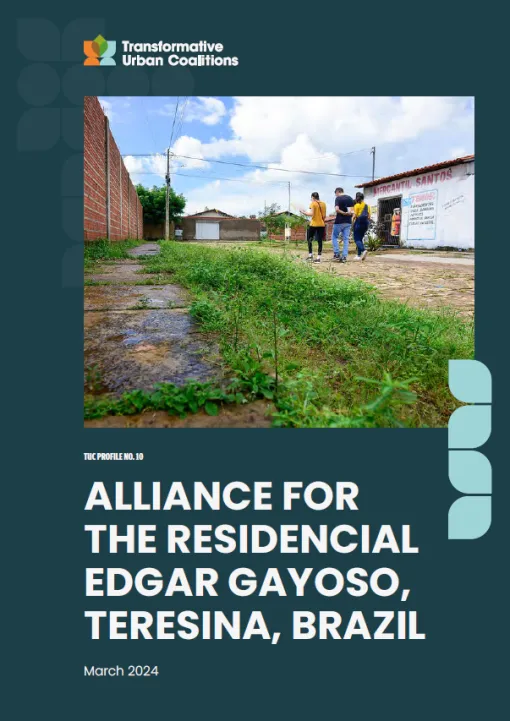
After almost two years in operation, the challenges and key achievements of the TUC Urban Lab established in Residencial Edgar Gayoso in Teresina, Brazil, provide valuable lessons for sustaining ongoing activities, accelerating broader transformations and guiding similar efforts elsewhere:
- ASSEMBLING A TRANSFORMATIVE COALITION FOR PARTICIPATORY GOVERNANCE: The UL approach has been instrumental in overcoming challenges associated with the MCMV programme in Residencial Edgar Gayoso, fostering community empowerment and sustainable local transformation. Establishing commitment within new local networks requires fundamental steps such as building trust, defining tangible goals, decentralizing decision-making, making individuals accountable and ensuring accessible meeting formats.
- BUILDING CONNECTIONS AND RAISING AWARENESS FOR CLIMATE ACTION: The development of mutual trust and awareness of climate change within the Alliance for the Residencial Edgar Gayoso is a precondition for tailoring climate discussions to the local context and emphasizing practical connections between pressing local needs and climate action. Promoting stronger engagement and collaboration is pivotal for achieving transformative changes across practical, political and personal spheres.
- LEVERAGING OPPORTUNITIES TO BROADEN THE IMPACT OF THE UL: Triggering systemic transformation requires a shift from individual-centric participation to broader institutional involvement within the Alliance for the Residencial Edgar Gayoso. Moreover, institutionalization through diverse organizational strategies coupled with strategic partnerships is essential.